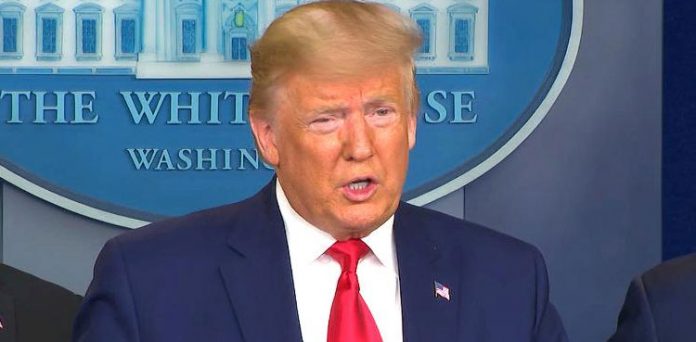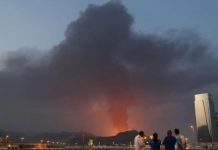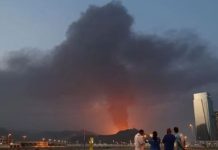WASHINGTON, Feb 09 (APP): Experts in global health voiced serious concern over the dismantling of the United States Agency for International Development (USAID), which distributes tens of billions of dollars’ worth of aid to a number of developing countries, including Pakistan, every year.
President Donald Trump’s administration has announced huge cuts to the agency’s workforce and the immediate suspension of almost all of its aid programmes.
It has announced a 90-day freeze on funding for aid projects while it undertakes a “review” to ensure they align with President Trump’s priorities.
Trump is a long-term critic of overseas spending and has said it needs to be brought into line with his “America First” strategy.
Leading the denunciation of Trump’s move to shutter the agency is former USAID chief Samantha Power. She said it threatened America’s national security and standing around the world.
“We are witnessing one of the worst and most costly foreign policy blunders in US history,” Ms. Power, who led the agency throughout former President Joe Biden’s term, wrote in the New York Times on Friday.
USAID runs health and emergency programmes in around 120 countries, including the world’s poorest regions.
Ms. Power dubbed the agency “America’s superpower” in a scathing opinion piece.
“We are witnessing one of the worst and most costly foreign policy blunders in US history,” said Power.
Unless the dismantling is halted, Ms. Power wrote, “future generations will marvel that it wasn’t China’s actions that eroded US standing and global security” but rather “an American president and the billionaire he unleashed to shoot first and aim later.”
On his part, Trump has targeted USAID in particular, saying the agency’s spending is totally unexplainable and has singled out certain projects as examples of how the agency is, in its view, wasting taxpayers’ money.
Health experts, on the other hand, have warned of the spread of disease, as well as delays to the development of vaccines and new treatments as a result of the cuts.
As well as directly running many health programmes, USAID funds other organizations to carry out work on its behalf, and the freeze in funding has caused confusion among these groups too.
Waivers for the funding freeze have been issued for some humanitarian programmes, but the announcement has already caused widespread disruption to services.
Dr Tom Wingfield, an expert in tuberculosis (TB) and social medicine at the UK’s Liverpool School of Tropical Medicine, said it is hard to underplay the impact of the decision to dismantle USAID.
“People don’t appreciate the extent and reach of USAID. It goes towards under-nutrition, hygiene, toilets, access to clean water, which all have a massive impact on TB and diarrhoeal diseases.
“Diseases don’t respect borders – that’s even more the case where we have climate change and mass movement of people. Infectious diseases will spread.”
Dr Wingfield says TB kills 1.3 million people per year and makes a further 10 million people ill.
But four out of 10 people never receive any care and can therefore transmit the disease, he said.
“Whether it’s a research project or a clinic affected, then we run risk of further transmission.
“People will die directly because of cuts in US funding.”
It’s not just TB clinics that are at risk, but those providing care for people living with HIV.
Much of this work is done by non-governmental organizations, NGOs, who provide vital anti-retroviral medicines which can suppress the amount of HIV in the blood to undetectable levels, which helps prevent sexual transmission to other people.
Dr Wingfield says if treatment is disrupted, there could be serious problems. “People with controlled HIV, if they miss meds, the virus in their blood increases and there’s a risk of onwards transmission.
“There is a risk of undoing all the progress to date.”
Frontline AIDS is a UK and South Africa-based organization that works with 60 partners across 100 countries.
More than 20 of their partners have said they are affected by the US foreign aid freeze.

















